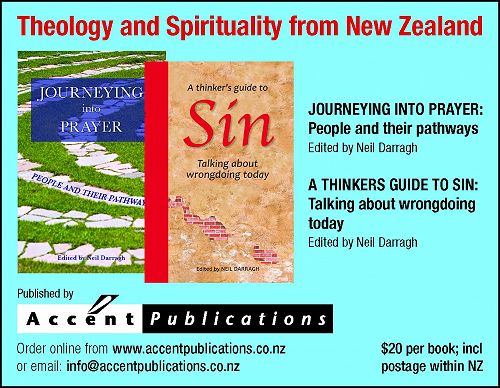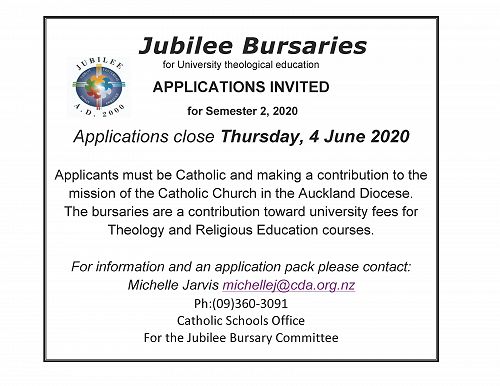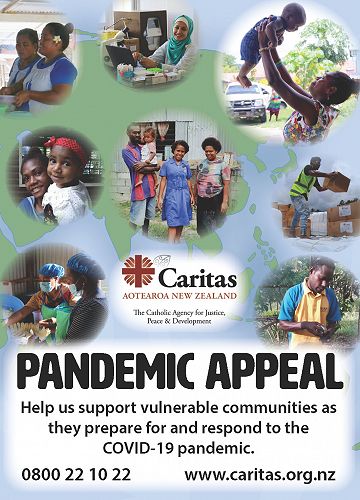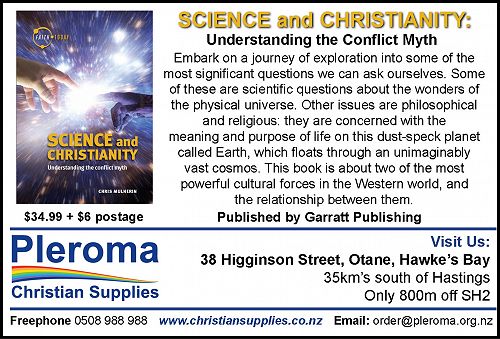
ARTICLE: All Manner of Things Will Be Well
Greg Marcar offers us encouragement to notice new theological insights evolving during this time of pandemic.
Samuel Johnson once famously quipped that “when a man knows he is to be hanged in a fortnight, it concentrates his mind wonderfully.” The current global crisis of COVID-19 provides a similar sharp reminder of our inherent vulnerability and mortality as human beings. I want to explore briefly the different ways in which previous pandemics have shaped our theological imagination and conscience, with the hope of better illuminating — and perhaps even concentrating our minds on — the paths which now lie before us as a Church.
Contagious Fear of the Black Death
One of the most studied and well-known global pandemics is the Black Death. Currently the deadliest pandemic in human history, the Black Death claimed the lives of between 75–100 million people in Europe from 1347–53. Both during its reign of terror and for centuries afterwards, this plague exercised a profound influence on the social and religious thought of Europeans.
The contagion of infectious disease fuelled a contagion of fear and mistrust, leading to many groups being scapegoated as the cause of others’ misfortune. Chief among these groups were religious heretics, Jews and witches. Indeed, historians have drawn a causal link between the devastation wrought by the Black Death and the notorious “witch trials” which took place in Europe during the 16th –17th century, when around 50,000 people were put to death following allegations of witchcraft.
As the work of social anthropologist and Catholic thinker René Girard has shown, when events occur which sow fear and insecurity, we too often reveal ourselves to have a propensity for seeking security and solidarity through group identities built over-and-against the “other”. While the present COVID-19 crisis continues to escalate, we would do well to recall this propensity and guard against the temptation to turn against the social or religious other.
Insights about God from the Black Death
This reaction, however, is only one side of the coin. The same historical pressures which drove some to send their neighbours to the stake may also have been responsible for some of the most profound affirmations of divine love and hope, even in the midst of suffering.
A favourite example of mine is Julian of Norwich (b 1342), an anchorite who not only lived through the collective trauma of the Black Death, but was also struck by a life-threatening illness aged 30. While on her sickbed, Julian received several visions which she later recorded in her Revelations of Divine Love. At one point in these revelations, Julian envisages the entirety of creation as a single contingent hazelnut, held in existence and preserved from perishing by the hand of an eternally loving God. In God, Julian perceives no wrath, but only the desire to rescue humanity from the consequences of its sin, such that in the end “all manner of things shall be well”.
Julian’s writings may be considered alongside other Catholic mystical theologians who also lived through the Black Death, such as Jan van Ruusbroec (1293-1381) and Johannes Tauler (ca 1300-61), as providing an enduring vision of God’s unconditional love and the Christian hope that in the end, all may be saved in Christ.
Contemplation Deepens Love
Another aspect of this late medieval post-plague theology was the view that solitude and silence need not separate ourselves from God or others but, paradoxically, can deepen our sense of love and connection.
The Augustinian Jan van Ruusbroec wrote some of his powerful works while alone in the forest. Like Julian — who, as an anchorite, would have spent most of her time confined to a small and solitary cell — Ruusbroec was expert in silence and self-isolation. What matters according to Ruusbroec, however, is not aloneness itself, but the person’s state of mind. Ruusbroec identifies true solitude with “solitude of heart”, in which a person can find equanimity regardless of whether they happen to be in a marketplace, a church or their own small room. God, for Ruusbroec, is akin to a boundless ocean which endlessly gives and receives in selfless love. Wherever individuals are, they can find God within their own soul and thus be in relation to the source of all being.
Paradoxically, we might say, it is through this form of solitude that we can be more connected in love with God and creation. As we continue our present predicament of being de facto Kiwi hermits, such a message might help us to find a renewed sense of connectivity and relationality with others.
Our Response at this Time
Crises such as COVID-19 thus present us with a stark choice which captures both the best and worst elements of human nature. On the one hand, fear from these events can drive us towards the desire to scapegoat others for our circumstances. Such a course is often accompanied by the vision of a punitive God, as one who is conveniently aligned with our own social or religious prejudices and fully agrees about the existential danger which sinful others pose to our salvation.
On the other hand, we can draw upon our shared condition of human vulnerability — which crises such as this surely lay bare — in order to realise our inherent relationality and interdependence on one another, and from this seek new forms of universal hope.
For the Catholic mystical writers who lived through the horrors of the Black Death, God’s love is not confined by our preconceptions; indeed, it not only transcends, but subverts the worst of our instincts and passions towards fellow creatures. If we follow this path, perhaps we might even dare to believe with Julian of Norwich that, in the end, “all manner of things shall be well”.
Greg Marcar is a research affiliate in the Centre for Theology and Public Issues in the University of Otago. He has been involved in several non-profit organisations, including the Red Cross, Christian Solidarity Worldwide, International Bridges to Justice, Liberty, and the Innocence Project New Zealand.
Tui Motu Magazine. Issue 248 May 2020
Gallery




